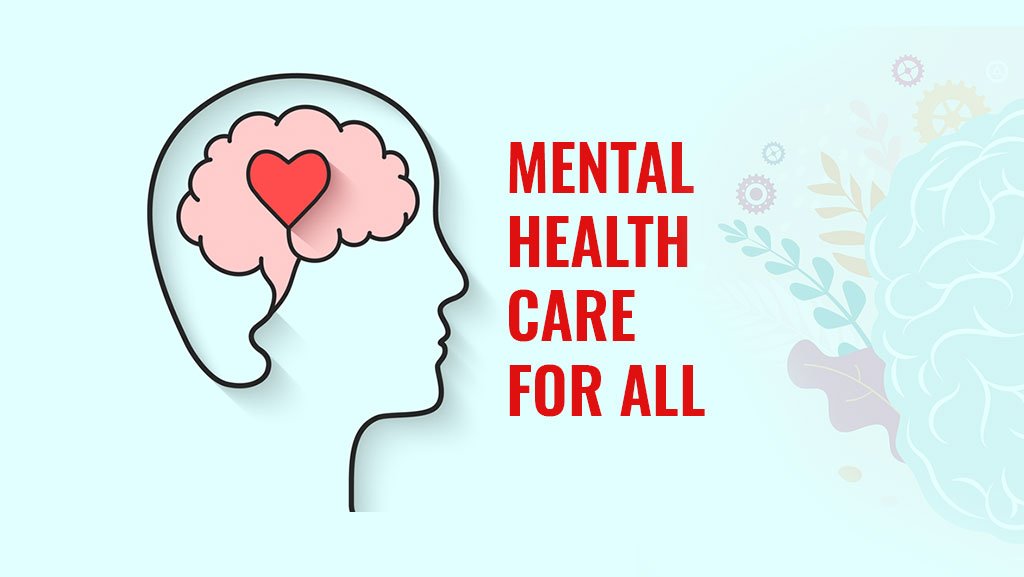
Mental health care encompasses a wide range of approaches, each offering unique methods to support emotional well-being and mental stability. Understanding the differences between psychology, psychiatry, and psychotherapy is essential for anyone seeking help. These fields, though interconnected, have distinct focuses: psychology seeks to understand behavior and thought processes, psychiatry combines medical treatments with therapeutic interventions, and psychotherapy focuses on uncovering underlying emotional patterns, resolving past traumas, and empowering people with the skills to manage life’s challenges more effectively.
Choosing the right path can make a significant difference in the effectiveness of your mental health care. For instance, someone dealing with severe depression might benefit from medication provided by a psychiatrist, combined with psychotherapy to address underlying emotional issues. On the other hand, those seeking to improve self-awareness or manage stress might find therapy with a psychologist to be most beneficial.
At Danielle Paphitis Psychotherapy, we specialize in Cognitive Behavioral Therapy (CBT), Dialectical Behavioral Therapy (DBT), and Mindfulness Based Therapy to provide tailored mental health solutions for clients in Adelaide and Online.
Understanding Psychology: Insights into Behavior and Thought
Psychology is the scientific study of emotions, behavior, and cognitive processes. It focuses on how people think, feel, and act in various situations. Psychologists use a range of evidence-based techniques to help individuals gain better control over their thoughts, emotions, and actions. Unlike psychiatrists, psychologists cannot prescribe medication; their focus is primarily on therapeutic interventions and assessments.
This field is invaluable for those seeking to improve self-awareness, manage stress, and develop healthier coping mechanisms. For example, someone struggling with anxiety might work with a psychologist to identify thought patterns that trigger their symptoms and learn techniques to manage them more effectively.
Subfields of Psychology
Psychology is a diverse field with several subfields, each targeting different aspects of mental health and behavior:
- Clinical Psychology: Focuses on diagnosing and treating mental health disorders through various therapies.
- Counseling Psychology: Addresses everyday stressors, relationship challenges, and personal growth.
- Forensic Psychology: Applies psychological principles to legal and criminal cases, helping in jury selection, offender profiling, and expert testimony.
- Educational Psychology: Assists students with learning difficulties and supports educators in managing classroom behavior.
- Industrial-Organizational Psychology: Enhances workplace productivity and employee well-being through assessments and training programs.
Each of these subfields plays a crucial role in ensuring that individuals receive specialized care based on their unique challenges and environments.
Education and Expertise of Psychologists
To become a psychologist, individuals typically pursue a Ph.D. (Doctor of Philosophy) or Psy.D. (Doctor of Psychology), which involves years of study in therapeutic techniques, research methods, and psychological assessments. A Ph.D. emphasizes research and academic contributions, while a Psy.D. focuses more on clinical practice. Both paths require supervised clinical experience and licensing exams.
Some psychologists further specialize in areas like neuropsychology, which examines how brain injuries and neurological conditions affect behavior and cognition, or health psychology, which focuses on how mental health impacts physical health and vice versa.
Work Settings for Psychologists
Psychologists work in a variety of settings, such as:
- Private Practices: Providing individual, group, or family therapy.
- Hospitals and Clinics: Working with medical teams to offer comprehensive mental health care.
- Schools and Universities: Assisting students with stress, learning disabilities, and emotional challenges.
- Corporate Environments: Offering employee assistance programs, leadership coaching, and stress management workshops.
This versatility allows psychologists to address a wide range of mental health needs, from managing stress at work to treating complex disorders like PTSD and OCD.
Key Therapeutic Techniques Used by Psychologists
Psychologists employ a variety of therapeutic techniques to help clients manage their thoughts and emotions effectively. Some of the most commonly used approaches include:
-
Cognitive Behavioral Therapy (CBT):
CBT is a goal-oriented therapy that focuses on identifying and reframing negative thought patterns that influence behavior. For instance, someone with social anxiety might learn to challenge the belief that others are always judging them negatively. By restructuring these thoughts, clients can adopt more balanced perspectives and healthier behaviors. CBT is highly effective for treating depression, anxiety, phobias, and even chronic pain. -
Dialectical Behavioral Therapy (DBT):
Originally developed to treat borderline personality disorder, DBT is now used for a range of conditions, including eating disorders, PTSD, and substance abuse. It combines cognitive-behavioral techniques with mindfulness practices to help individuals manage intense emotions and improve interpersonal relationships. For example, DBT teaches clients how to navigate conflict without escalating or avoiding it. -
Mindfulness-Based Therapy:
Mindfulness-based therapies encourage clients to focus on the present moment without judgment. Techniques such as meditation, body scans, and deep breathing exercises are used to reduce stress and improve emotional regulation. This approach is particularly beneficial for those dealing with chronic stress, anxiety, or relapse prevention for depression. -
Psychodynamic Therapy:
This approach delves into unconscious processes and past experiences that shape current behavior. By exploring unresolved conflicts and childhood experiences, psychodynamic therapy helps clients gain insight into their emotional patterns and build healthier relationships. It’s particularly effective for long-standing issues like relationship difficulties, self-esteem problems, and chronic anxiety. -
Humanistic Therapy:
Humanistic approaches, such as Client-Centered Therapy developed by Carl Rogers, focus on an individual’s potential for self-growth and emphasize empathy, unconditional positive regard, and authenticity. The therapist acts as a guide rather than an authority, allowing clients to explore their feelings freely and find their own solutions to problems.
Online Therapy: A Flexible Alternative
For those who prefer remote access to mental health support, online therapy has emerged as a practical and confidential alternative. Advances in telehealth have made it possible to connect with licensed psychologists through video calls, phone consultations, or secure messaging platforms. Online therapy can be particularly helpful for:
- Individuals in rural or remote areas who lack access to local mental health services.
- People with mobility issues or chronic illnesses that make travel challenging.
- Busy professionals or parents who need flexible scheduling options.
Studies indicate that online CBT is as effective as face-to-face therapy for treating anxiety, depression, and PTSD. Moreover, the convenience of accessing therapy from home can encourage consistent attendance and reduce treatment dropout rates.
Exploring Psychiatry: The Medical Approach to Mental Health
Psychiatry is a branch of medicine that focuses on the diagnosis, treatment, and prevention of mental, emotional, and behavioral disorders. Unlike psychologists, who rely primarily on therapeutic techniques, psychiatrists are medical doctors (MDs or DOs) who can prescribe medication to help manage symptoms of mental health conditions. Their training includes medical school followed by a residency in psychiatry, providing them with a deep understanding of the biological aspects of mental health.
Psychiatrists adopt a biopsychosocial approach to treatment, considering biological factors (like genetics and neurochemistry), psychological factors (such as thought patterns and emotions), and social factors (including relationships and environment) that contribute to mental health conditions. This comprehensive view helps in creating personalized treatment plans that often combine medication, psychotherapy, and lifestyle modifications.
When to Consider Seeing a Psychiatrist
Knowing when to seek help from a psychiatrist can be crucial for effective treatment. You might consider consulting a psychiatrist if you experience:
-
Severe Depression: If depressive symptoms, such as hopelessness, suicidal thoughts, or inability to function, persist despite therapy alone, medication might be necessary to stabilize mood and improve overall functioning. Antidepressants like SSRIs (Selective Serotonin Reuptake Inhibitors) can help manage these symptoms effectively.
-
Anxiety Disorders: While therapy is highly effective for managing anxiety, some individuals benefit from medications such as benzodiazepines for short-term relief or SSRIs for long-term management. A psychiatrist can assess the severity of symptoms and recommend the appropriate treatment.
-
Bipolar Disorder: Characterized by extreme mood swings, bipolar disorder often requires mood-stabilizing medications like lithium or anticonvulsants to manage manic and depressive episodes effectively.
-
Schizophrenia: This condition involves hallucinations, delusions, and disorganized thinking that significantly impair daily functioning. Antipsychotic medications are essential for managing symptoms, and ongoing psychiatric care is often required.
-
Obsessive-Compulsive Disorder (OCD): Severe OCD may require a combination of antidepressants (like SSRIs) and Cognitive Behavioral Therapy (CBT) to manage symptoms effectively. Psychiatrists can help adjust medications to minimize side effects while maximizing therapeutic benefits.
-
Post-Traumatic Stress Disorder (PTSD): In severe cases, medication such as antidepressants and prazosin (for nightmares) may be prescribed alongside trauma-focused therapies to help manage symptoms.
If symptoms significantly impair your ability to work, maintain relationships, or manage daily responsibilities, a psychiatrist can provide a comprehensive evaluation and recommend a treatment plan that may include medication, psychotherapy, or both.
Medication Management in Psychiatry
One of the key roles of a psychiatrist is medication management. This involves prescribing medications, adjusting dosages, monitoring side effects, and ensuring that the treatment is effective. Unlike general practitioners, psychiatrists specialize in psychopharmacology—the study of how medications affect the mind and behavior. This expertise is particularly important for conditions requiring multiple medications or complex management strategies.
Types of Medications Commonly Prescribed by Psychiatrists:
- Antidepressants: Used for depression, anxiety, OCD, and PTSD. Common types include SSRIs (like Prozac and Zoloft) and SNRIs (Serotonin-Norepinephrine Reuptake Inhibitors).
- Antipsychotics: Prescribed for schizophrenia, bipolar disorder, and severe depression. They help manage symptoms like hallucinations and delusions.
- Mood Stabilizers: Used primarily for bipolar disorder to control mood swings. Examples include lithium and valproate.
- Anxiolytics: Such as benzodiazepines (like Xanax and Ativan), used for short-term management of acute anxiety. Long-term use is typically avoided due to the risk of dependence.
- Stimulants: Prescribed for ADHD to help improve focus and reduce hyperactivity. Common options include Adderall and Ritalin.
Psychiatrists also provide psychoeducation about these medications, explaining how they work, what side effects to expect, and the importance of adherence to ensure the best outcomes.
The Importance of a Comprehensive Treatment Plan
Effective psychiatric care often involves more than just prescribing medication. A comprehensive treatment plan might include:
- Medication: To stabilize symptoms.
- Psychotherapy: To address underlying emotional issues and develop coping strategies.
- Lifestyle Modifications: Such as exercise, diet, and sleep hygiene to support mental well-being.
- Support Groups: Providing a sense of community and shared experiences.
Combining medication and therapy is particularly effective for conditions like major depressive disorder, bipolar disorder, and PTSD. Medication helps manage symptoms quickly, while therapy focuses on long-term recovery by addressing the root causes of distress.
Psychiatry vs. Psychology: Key Differences
While both psychiatrists and psychologists are mental health professionals, their approaches differ significantly:
- Education: Psychiatrists attend medical school and can prescribe medication, while psychologists pursue a Ph.D. or Psy.D. focused on therapy and assessments.
- Approach: Psychiatrists use a medical model focusing on neurobiology and medications, while psychologists emphasize talk therapy and behavioral interventions.
- Treatment Focus: Psychiatrists often manage severe mental health conditions requiring medication, such as schizophrenia and bipolar disorder. Psychologists handle a broader range of issues, from anxiety and depression to relationship problems and stress management.
Understanding these differences can help you decide whether to start with a psychiatrist for medication management or a psychologist for therapy—or a combination of both.
Collaborative Care: Psychiatrists and Psychologists Working Together
For many individuals, the best approach to mental health care involves collaborative treatment between psychiatrists and psychologists. In this model:
- Psychiatrists focus on managing symptoms with medication.
- Psychologists address underlying thought patterns and behaviors through therapy.
- Regular consultations between both professionals ensure that medication and therapy complement each other effectively.
For instance, a person with severe depression might see a psychiatrist for antidepressants and a psychologist for CBT to address negative thought patterns. This integrative approach maximizes the chances of recovery by targeting both symptoms and their underlying causes.
Telepsychiatry: Expanding Access to Care
With advances in technology, telepsychiatry has emerged as a vital resource, especially for those in remote areas or with limited access to in-person care. Telepsychiatry allows patients to consult psychiatrists via video calls, phone calls, or secure messaging platforms. Benefits include:
- Increased Accessibility: Ideal for individuals in rural areas.
- Convenience: Reduces travel time and costs.
- Consistency: Encourages regular follow-up appointments, which are crucial for managing medication and monitoring progress.
Research shows that telepsychiatry is just as effective as traditional in-person consultations for managing conditions like depression, anxiety, and bipolar disorder.
The Role of Psychotherapy in Mental Wellness
Psychotherapy, often referred to as talk therapy, is a treatment approach that involves structured conversations with a trained therapist to explore emotional challenges, behavior patterns, and pathways to personal growth. Unlike psychiatry, which may involve medication, psychotherapy focuses on helping clients develop insight into their feelings and behaviors, build emotional resilience, and adopt healthier coping strategies.
The essence of psychotherapy lies in creating a safe, non-judgmental space where clients can openly discuss their thoughts and emotions. Therapists guide this process by using various evidence-based techniques designed to address specific mental health challenges, such as anxiety, depression, trauma, and relationship difficulties. The ultimate goal is to help clients gain a deeper understanding of themselves and develop practical skills to manage life’s challenges more effectively.
At Danielle Paphitis Psychotherapy, we specialize in Cognitive Behavioral Therapy (CBT), Dialectical Behavioral Therapy (DBT), and Mindfulness-Based Therapy, offering personalized approaches to support emotional healing and well-being.
Popular Types of Psychotherapy
Different forms of psychotherapy cater to various emotional and psychological needs. Here are some of the most commonly practiced types:
-
Cognitive Behavioral Therapy (CBT):
CBT is a goal-oriented form of therapy that focuses on identifying and modifying negative thought patterns and behaviors. It operates on the principle that our thoughts influence our feelings, which in turn affect our actions. For instance, someone with social anxiety might learn to challenge automatic thoughts like “Everyone is judging me” and replace them with more balanced perspectives. CBT is particularly effective for treating anxiety disorders, depression, OCD, and PTSD. -
Dialectical Behavioral Therapy (DBT):
A specialized form of CBT, DBT was originally developed to treat borderline personality disorder (BPD) but is now used for a range of conditions including eating disorders, PTSD, and substance abuse. DBT combines cognitive-behavioral techniques with mindfulness practices to help individuals manage intense emotions and improve relationships. Key skills taught in DBT include distress tolerance, emotion regulation, and interpersonal effectiveness. For example, learning to pause and breathe during conflict rather than reacting impulsively. -
Psychodynamic Therapy:
This approach delves into unconscious processes and past experiences that influence present behavior. It is based on the belief that unresolved conflicts from the past can manifest as emotional distress in the present. Through free association, dream analysis, and exploring childhood experiences, psychodynamic therapy helps clients gain insight into the root causes of their issues. It’s especially beneficial for long-standing challenges such as relationship problems, chronic anxiety, and low self-esteem. -
Mindfulness-Based Therapy:
Rooted in Buddhist practices, mindfulness-based therapies, such as Mindfulness-Based Stress Reduction (MBSR) and Mindfulness-Based Cognitive Therapy (MBCT), focus on helping clients stay present without judgment. Techniques include meditation, breathing exercises, and body scans. These practices help manage stress, prevent relapse in depression, and improve emotional regulation. Mindfulness-based approaches are also integrated into other therapies, such as DBT and Acceptance and Commitment Therapy (ACT). -
Humanistic Therapy:
Approaches like Client-Centered Therapy and Gestalt Therapy fall under this category. Humanistic therapy emphasizes the inherent potential for self-growth in every individual. It focuses on self-acceptance, authenticity, and taking responsibility for one’s actions. The therapist’s role is to provide empathy, unconditional positive regard, and a non-directive approach that allows clients to explore their feelings freely. -
Interpersonal Therapy (IPT):
IPT focuses specifically on improving interpersonal relationships and communication patterns to alleviate symptoms of depression and anxiety. By addressing issues like unresolved grief, role disputes, and social isolation, IPT helps clients develop healthier ways of interacting with others.
Key Benefits of Engaging in Psychotherapy
Psychotherapy offers a wide range of benefits that extend beyond immediate symptom relief. Here are some of the most impactful outcomes:
-
Enhanced Emotional Awareness:
Psychotherapy helps clients identify, understand, and express their emotions more effectively. By exploring emotional triggers and learning to manage them, clients gain greater control over their responses in stressful situations. -
Development of Effective Coping Skills:
Therapists teach practical strategies for managing stress, anxiety, and depressive symptoms. Techniques such as cognitive restructuring, grounding exercises, and mindfulness practices empower clients to handle challenges more constructively. -
Improved Relationships:
By enhancing communication skills and helping clients understand their relationship patterns, psychotherapy fosters healthier and more fulfilling connections with others. For example, Couples Therapy focuses on resolving conflicts and improving emotional intimacy. -
Resolution of Past Traumas:
Therapies like Eye Movement Desensitization and Reprocessing (EMDR) and Trauma-Focused CBT are designed to help individuals process and move past traumatic experiences that continue to affect their present lives. By addressing these unresolved issues, clients can reduce symptoms of PTSD, anxiety, and chronic stress. -
Increased Self-Esteem and Confidence:
By challenging negative self-perceptions and building on strengths, psychotherapy helps clients develop a healthier self-image and greater confidence in their abilities. This is particularly beneficial for those dealing with imposter syndrome, social anxiety, or body image issues. -
Long-Term Impact:
Unlike medication, which manages symptoms but may not address underlying causes, psychotherapy aims to create lasting change by helping clients understand the root causes of their distress. Many clients report sustained improvements in emotional regulation, decision-making, and overall quality of life even after therapy has ended.
The Importance of a Safe Therapeutic Environment
A key aspect of effective psychotherapy is the therapeutic alliance—the trust and rapport between client and therapist. A safe, non-judgmental environment encourages open communication and honesty, which are essential for meaningful progress. Therapists use active listening, empathy, and validation to create a space where clients feel understood and supported.
At Danielle Paphitis Psychotherapy, building a strong therapeutic alliance is a core focus. Our approach is client-centered, ensuring that every individual feels heard, understood, and empowered to make positive changes.
Online Psychotherapy: Expanding Access to Care
Advances in telehealth have made it possible to access psychotherapy remotely through video calls, phone consultations, and secure messaging platforms. Online therapy can be particularly beneficial for:
- Individuals in remote areas with limited access to mental health services.
- Busy professionals or parents who need flexible scheduling options.
- Those with mobility challenges or chronic illnesses that make travel difficult.
Studies indicate that online therapy, especially online CBT, is just as effective as in-person sessions for managing anxiety, depression, and PTSD. The convenience of accessing therapy from home also promotes consistent attendance and reduces treatment dropout rates.
Choosing the Right Mental Health Professional
Selecting the right mental health professional depends on your unique needs and challenges. If you need medication to manage symptoms like severe anxiety, depression, or bipolar disorder, a psychiatrist is the best choice. Psychiatrists are medical doctors who can prescribe medication and often work alongside therapists to provide comprehensive care.
For those dealing with behavioral challenges, stress, or relationship issues, a psychologist may be more appropriate. Psychologists use evidence-based therapies such as Cognitive Behavioral Therapy (CBT) and Mindfulness-Based Therapy to help clients manage emotions and develop healthier thought patterns.
If your focus is on emotional healing, personal growth, or addressing past traumas, psychotherapy can offer profound benefits. Therapists use a variety of approaches—including psychodynamic therapy, humanistic therapy, and dialectical behavioral therapy (DBT)—to help clients gain insight into their feelings and build long-term coping skills.
Combining these approaches often yields the best results. For example, a psychiatrist might prescribe antidepressants to stabilize mood, while a psychologist provides therapy to address underlying thought patterns.
Conclusion: Taking the First Step Toward Mental Wellness
Understanding the differences between psychology, psychiatry, and psychotherapy is essential for making informed decisions about your mental health care. While psychiatry focuses on managing symptoms medically, psychology and psychotherapy emphasize understanding behavior and fostering emotional resilience.
For personalized therapy options in Adelaide, consider reaching out at daniellepaphitis.com. Taking that first step can lead to lasting emotional well-being and a more fulfilling life.




